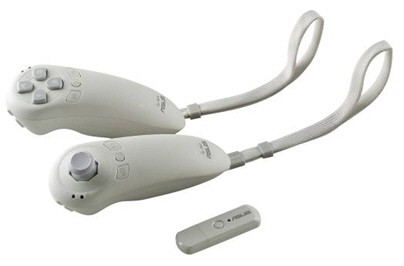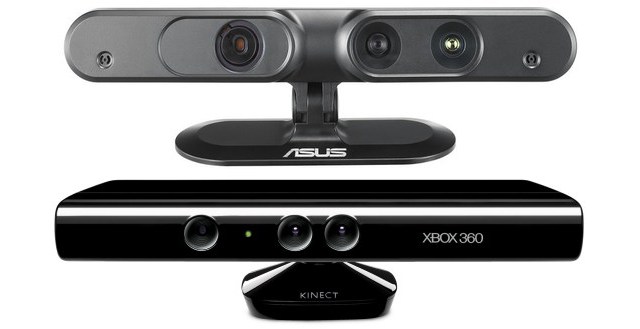Asus has been working with Kinect co-creator PrimeSense to put together a PC-based version of Microsoft’s hit depth-detecting game controller. The thought, I presume, was that PC gamers and hackers would like a native device and an open platform for gesture-based game and OS controls.
Their creation has been around for a bit, but we haven’t heard much regarding it, perhaps because it isn’t really an exact copy of the Kinect at all, but an inferior product. Asus is launching a new version (the Xtion Pro Live, detailed here at VR Zone), but one can’t help being reminded of their ill-fated “Eee Stick,” another game-controller clone that never took off.

The Eee Stick was a knockoff of the Wii, cheapened by the lack of the Wii’s all-important IR bar. Accelerometers in teardrop-shaped controllers and a few tech demos masquerading as games. They had a hundred people on the development team at one point, so it wasn’t just a concept. Is the Xtion any different?
I think they’ve got the right idea in pushing a unique angle like gesture controls for a PC, but mimicking the competition so closely was a mistake. The Kinect is a gaming device, meant for living rooms with plenty of space where it can perch conspicuously on top of the TV or cabinet. It was never designed to be a PC peripheral (though to be sure, Microsoft is working on a version like that) so basing one off that design is the wrong move from the start.
The new version is more powerful than the old one, but still doesn’t match all the features of the Kinect — and yet it costs a hundred dollars more. Asus, a company with occasional (but by no means frequent) flashes of brilliance in notebook and PC design, should be focusing on miniaturizing the technology and embedding it, or implementing PrimeSense’s OpenNI ideas using existing technology.
If people want a Kinect, they’ll buy a Kinect. Asus is barking up the wrong tree here.
[via Electronista]
